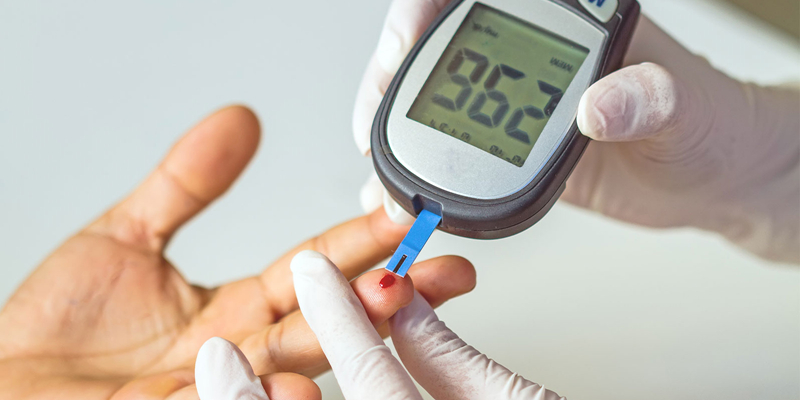5 Tips for Preventing Cardiovascular Issues in Your Daily Life
5 Tips for Preventing Cardiovascular Issues in Your Daily Life
Cardiovascular disease is the leading cause of death worldwide. From strokes to heart attacks, heart disease can strike without warning and have devastating consequences.
The good news? Many cases of cardiovascular disease can be prevented through lifestyle changes.
In this blog post, we'll provide five actionable tips to help reduce your risk of cardiovascular problems. You can set yourself on a path towards better heart health by adjusting your daily habits.
Read on to learn simple yet effective ways to take control of your heart health starting today.

What Triggers Cardiovascular Disease?
Cardiovascular disease can seem inevitable, but understanding root causes reveals clear areas to target through lifestyle measures. The main culprits for compromised heart health include:
● Smoking: Lighting up incites immediate inflammatory damage and constriction of delicate arterial walls, exponentially escalating risk.
● Physical inactivity: Insufficient movement directly contributes to obesity, diabetes and hypertension - all precursors to stroke and heart attack.
● Poor nutrition: Chronic junk food consumption packs on dangerous visceral belly fat, fluctuates blood sugar, and inflames arterial linings.
● Chronic stress: When unrelieved, everyday strain chronically floods the body with hormones and signalling molecules that force the cardiovascular system into overdrive.
● Genetic factors: While family history raises risk, studies confirm lifestyle habits trump genetic predisposition in determining cardiovascular fate.
5 Tips for Preventing Cardiovascular Disease
Below, you'll find science-backed, simple habits to bolster heart health and avoid cardiovascular catastrophes like stroke or heart attack. Check out how seamlessly these realistic, daily tweaks can fit into your existing routines:
1.Walk This Way
Regular physical activity is one of your best bets for keeping your cardiovascular system resilient. But "exercise" doesn't need to mean gruelling workouts. Instead, aim to move more throughout your day.
Meeting physical activity guidelines can add up to 4 extra years to your lifespan! Daily movement strengthens the heart muscle, prevents plaque buildup in arteries, manages healthy cholesterol ratios and blood pressure, and burns belly fat.
How To Do It:
Walk as much as possible! Take the stairs, choose farther parking spots, pace during phone calls, schedule walking meetings or recruit a coworker to be your workplace walking buddy. Gradually accumulate 150 minutes per week.
2.Portion Distortion
Excess weight strains the cardiovascular system and correlates to disease risk and severity. However, restrictive dieting only works short-term. Instead, learn proper portion sizes.
Shedding just 5-10% of current body weight markedly reduces blood pressure, bad LDL cholesterol, triglycerides, and the likelihood of diabetes - all major cardiovascular culprits. Losing weight also alleviates joint pain, boosting everyday activity.
How To Do It:
Use smaller plates and bowls to prevent portion distortion. Fill half your plate with vegetables and split the other half evenly between lean protein and whole grains. Swap caloric beverages for infused water. Freeze leftovers into portioned containers.
3.Sugar Substitute
A high refined sugar intake packs on dangerous belly fat, sending blood sugar fluctuating and inflaming arteries - dramatically escalating cardiovascular risk. But you needn't eliminate sweets. Swap out added sugars for natural alternatives.
Reducing added dietary sugars promotes healthy cholesterol ratios and blood pressure levels. It also prevents obesity and diabetes - two of the most potent precursors for heart attack and stroke.
How To Incorporate this healthy habit:
Satisfy sweet cravings with fresh or frozen fruit, sprinkle cinnamon on oatmeal or low-fat yoghurt, blend bananas or avocado into smoothies or mix cocoa powder into coffee rather than adding sugar.
4.Schedule Self-Care
Chronic stress chronically elevates blood pressure and heart rate while promoting inflammation and unhealthy coping habits like smoking, drinking or emotional eating. All jeopardize cardiovascular wellness. But simple stress management techniques make all the difference.
Relaxation practices lower blood pressure, heart rate variability and inflammatory markers within weeks - even hours - after adoption! Carving out time to intentionally unwind combats stress-induced cardiovascular strain.

How To Do It:
Book massages, schedule vacations and weekend adventures to anticipate, maintain a gratitude journal, practice deep breathing, take relaxing baths, do yoga or curl up with a fascinating book. Disconnect from digital devices and make time for self-care.
5.Early to Bed
Running on empty tanks quickly sabotages cardiovascular health by ramping up blood pressure, blood sugars and inflammatory signalling molecules that damage delicate arterial walls. But sufficient sleep helps repair this toll taken by daily stressors.
Meeting the recommended 7-9 hours of sleep per night reduces the likelihood of heart disease by over 50%! Quality sleep promotes metabolic health to prevent obesity, diabetes and artery-clogging cholesterol.
How To Do It:
Maintain a consistent sleep schedule, even on weekends. Power down digital devices 1-2 hours pre-bedtime, keep the bedroom cool and dark, avoid caffeine after noon, and establish a calming pre-bed routine like reading fiction or gentle stretching.
Conclusion
While cardiovascular disease remains the leading global cause of death, it doesn't need to be your fate. Adopting minor, daily lifestyle tweaks recommended here gives you immense power to dramatically lower disease likelihood and safeguard your heart's health for decades ahead.
Remember, there is always time to benefit. Commit now to regular cardio-protective habits, and give your heart the fighting chance it deserves.
Though simple, the collective impact of these evidence-backed tips must be balanced and may save your life. The time for action is now!











